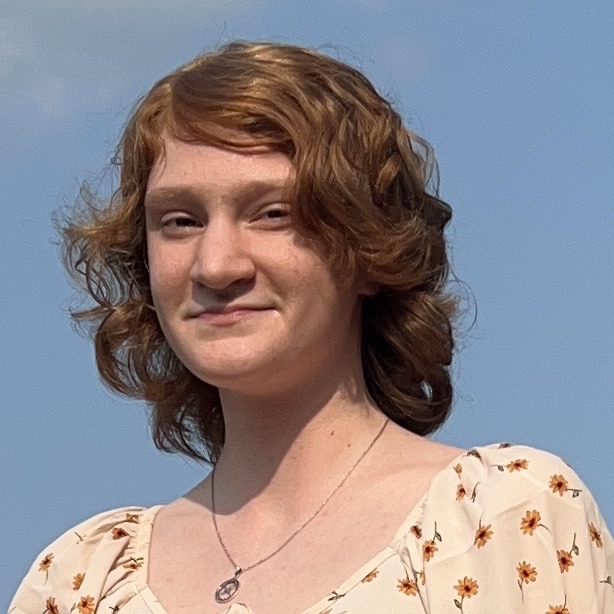Unveiling the Vision: The Story Behind Saga V
- Jessica Janiszewski

- Oct 5, 2025
- 4 min read
Updated: Oct 6, 2025
Divining the Project
The design problem that characterized the Saga V project was the creation of an upcoming mocktail brand focused on engaging storytelling that ignites the passions of our consumers. Four teams–brand, web, content, and packaging–were to work in tandem to create polished deliverables that were unified in their creative direction. Final deliverables from all teams were to be completed in a two week time frame. Following an agile workflow, concepts would go through several phases of iteration, testing, feedback, and revision. I personally served as the project manager for the packaging team and oversaw the progress of my 12-member unit. Our team received branding guidelines and a product lineup as formulated by the brand team, and used these tools to establish a design system that incorporated mandatory nutritional information for five mocktails of various flavor profiles. Packaging final deliverables included mockups and dielines for individual bottled units and boxes, nutrition facts labels, and label illustrations.

Targeting the Modern Mystic: Defining Our Audience
This product would occupy a position in the market for sophisticated, high-end alternatives to alcoholic beverages. As such, initial research sought to uncover the target audience for such a brand, and therefore guide each team toward a singular theme and visual identity. Competitive benchmarking confirmed that premium beverage brands often employ unified typography, high quality and appealing visuals, and symbolic graphics to create a distinctive identity.
Among Gen-Z and Millennial audiences, blind boxes and other mystery collectible items are incredibly popular and highly prevalent in modern trends. Expanding upon early concepts from the branding team that followed a medieval and mythological theme, my team proposed collectible designs unique to each product in our product line. Inspired by the ritual of tarot-readings, we elected to add another dimension to the consumption of our premium mocktail: by printing the tarot card artwork to face the interior of the bottle, the design would become visible over time through the glass as the consumer enjoyed their beverage. Thus, Saga V promises to our customers both an enjoyable drink as well as an exciting and fantastical experience.

Packaging the Narrative: Leading Design Project Management
As the project manager for the packaging design team, my role was to ensure the visual system for product packaging was executed according to guidelines from the brand team and regulations from the Food and Drug Administration (FDA). I managed a team with varying strengths and availability, so I began by delegating tasks based on technical skill, bandwidth, and working styles. This ensured each person was sure to succeed in their role, as well as allowed all milestones to be met on time. In addition, I established standards for the organizational tools and naming conventions to be used by our team. We utilized Slack for daily status updates, Notion to track due dates, and Google Drive for shared delivery of submissions.

Cross-Team Alchemy: Collaboration Across Brand Pillars
The Packaging Team faced the challenge of developing a packaging framework in the absence of an established visual identity. Without a unified approach, the brand risked creating a fragmented consumer perception. My team’s ability to deliver on milestones early and without sacrificing quality played a key role in maintaining the pace and cohesion of the full brand launch. I corresponded with team leads from the branding, web, and content teams and relayed relevant updates, feedback, and visuals to my team to ensure all work output was unified. Working parallel with the three other primary teams, we established a brand that utilizes tarot mysticism and collectible appeal to draw in an audience of Gen-Z through Millennial individuals.
Measuring the Magic: Deliverables, Engagement, and Brand Impact
Packaging is strategically critical as it represents the consumer’s first interaction with the product, reinforcing brand identity, driving shelf visibility, and enhancing collectibility. Our team produced a comprehensive suite of packaging assets, including mockups and dielines for bottled units and protective boxes, nutrition labeling, and label artwork inspired by tarot motifs. Every flavor was represented by a unique, hand-illustrated character that aligned with the product's name and messaging. These illustrations reinforced the collectible nature of the product, inviting consumers not only to drink, but to collect the full saga of products offered by our brand. We measured success by on-time delivery of high-quality deliverables, brand cohesion, and audience engagement. Timely completion of our work output and early handoff to other teams was essential to maintaining brand consistency across the entire project. We wanted each element to belong to the same story and identity.

Reflections and Next Chapters
Working on Saga V taught me valuable lessons about creative leadership, brand development, and the importance of cross-functional collaboration. As the project manager of the internal packaging team, I gained firsthand experience balancing creative ambition with project scope and practicality. One key takeaway was the importance of strategically delegating tasks matched to team member strengths, which allowed us to maintain momentum without compromising quality output. Inter-team communication necessitated the creation of a cohesive brand; corresponding with other team leads allowed us to find common ground amongst the components of the visual identity being built across our different disciplines. Ultimately, this project deepened my appreciation for collaborative work of this scale, and provided me with tools to lead future teams with clarity and impact.



Comments